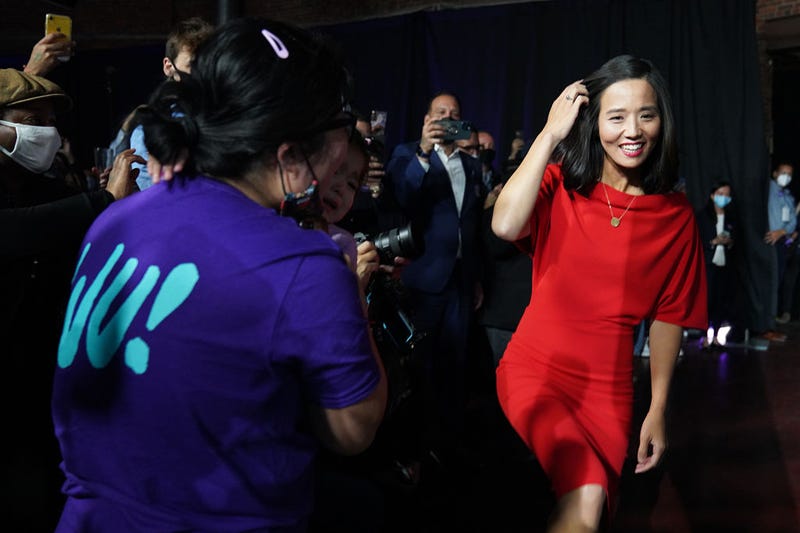
Michelle Wu, age 36, made history in Boston Tuesday when she became the city’s first female mayor and the first mayor of color elected in Massachusetts’ largest metropolis.
According to NPR, Wu’s victory ends a 199-year streak of white males being elected to the post. However, her opponent, fellow Democratic City Councilor Annissa Essaibi George, a first generation Arab-Polish woman, would have ended the tradition as well.
Wu is more than just a mayor, and her story begins outside of New England. Here’s what you should know about Beantown’s new top official:
From Chicago to Harvard
Wu’s parents immigrated to the U.S. from Taiwan, according to NPR. She was born on the South Side of Chicago and lived in Bridgeport during her early years.
Wu told the Chicago Sun-Times that her family got by with help from social safety net programs.
Eventually, Wu’s family moved to Barrington, a suburb of Chicago. She graduated from Barrington High School in 2003 and went on to study Harvard University. Attending the Ivy League institution first brought her to the Boston area.
Back home
When Wu finished her undergraduate degree at Harvard, she worked as a business consultant. Then, family responsibilities brought her back to Chicago.
“When my mom began struggling with mental illness as I was finishing college, I became her caregiver and raised my sisters,” said Wu on her campaign website.
“In those days as we were trying to figure out how to go on in the depths of family crisis, it felt like we were alone, invisible, and powerless.”
Despite these challenges, Wu managed to open a small tea house called Loose Leaf Tea Loft on Lincoln Avenue in Chicago. It became known for poetry and open mic nights, said the Sun-Times.
Operating the business also introduced Wu to inspection and permit processes at city hall and Chicago aldermen.
“There were days I had to take off work to go sit in City Hall and wait to ask some questions,” she told the Sun-Times.
To law school and Boston City Hall
In 2009, Wu decided to move her mother and siblings to Cambridge, Mass., so she could attend Harvard Law School. She graduated in 2012.
Wu now lives with her mother, husband and two sons in Boston.
At Harvard Law, Wu was taught by Sen. Elizabeth Warren – she even worked on the progressive Democrat’s Senate campaign. Wu also worked for former Mayor Tom Menino. These experiences led her to run for a seat on Boston’s City Council in 2013.
“I’ve stood alongside activists, advocates, and community members to lead the nation in providing paid parental leave, fighting the climate crisis, changing the conversation on transportation, standing up against corporate interests like Airbnb, and rooting out corruption in our bureaucracies,” said Wu of her tenure on the council.
Mayoral election
According to NPR, the race between Wu and George marked a “turning point” in Boston politics, which have been marred by “racial tensions and forced desegregation.”
Even as the city becomes more diverse, it is still regarded as a hot bed of bigotry, said a seven-part series on racism published by the Boston Globe in September. Over the summer, at least two Anti-Asian hate crimes were reported in nearby Newton, Mass., by NBC Boston.
Wu is considered more progressive than George, said the NPR.
During her campaign she spoke in favor of climate change policies in line with the Green New Deal, rent control and rent stabilization, eliminating fares on the metropolitan area's public transit system and abolishing the Boston Planning and Development Agency.
Unofficial results from the election show that Wu beat George 63.94 percent to 35.65 percent.


